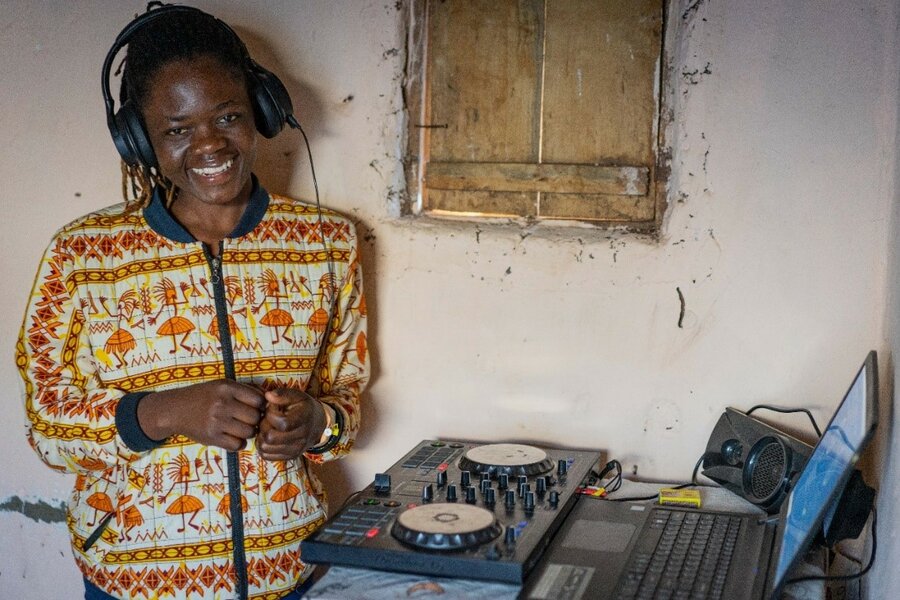
Women and girls are often said to be at the front line of hunger, which affects 828 million people around the world - why?
"If women have lower education rates, limited access to land inheritance, land ownership, credit, information such as weather forecasts [critical for smallholder farmers, many of whom are women], market information, limits on having capital assets, then we cannot change the inequality in wider food systems," says Veronique Sainte-Luce - head of partnerships and reporting for the World Food Programme (WFP) in the Democratic Republic of Congo.
And she should know - DRC is a country beset by structural inequality for women sealed in law.
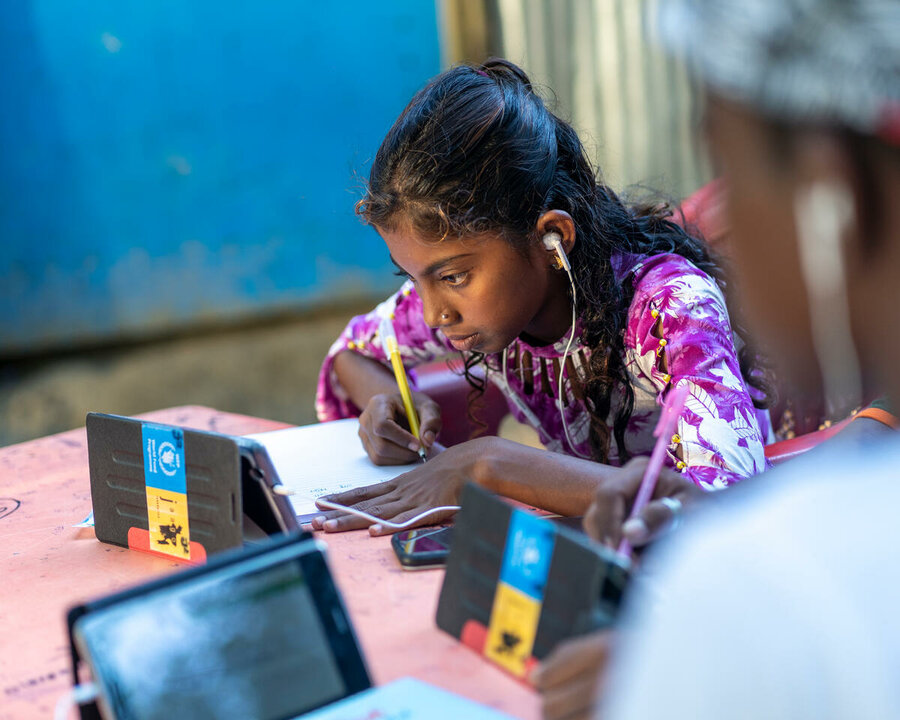
"World society must start by changing the law," she adds. "Humanitarian agencies must work on access to land, work on the decision-making process at the family level."
Across countries and cultures "food and meal preparations" are often the work of women. "Women take care of babies, children, elderly, the food preparation - but it does not mean they have the power of decision-making in how to use the resources of their households to ensure food security."
This is where cash grants come in and these require much 'sensitization' - "explaining why we give that cash so that they (women) don't become victims of violence", a sad and sadly common consequence of men being offended that it is their wife receiving the cash.
Saint-Luce is co-author of You Matter, How Women Reclaiming their Power are Changing the World which, she says, is available for free on Kindle on Women's Day.
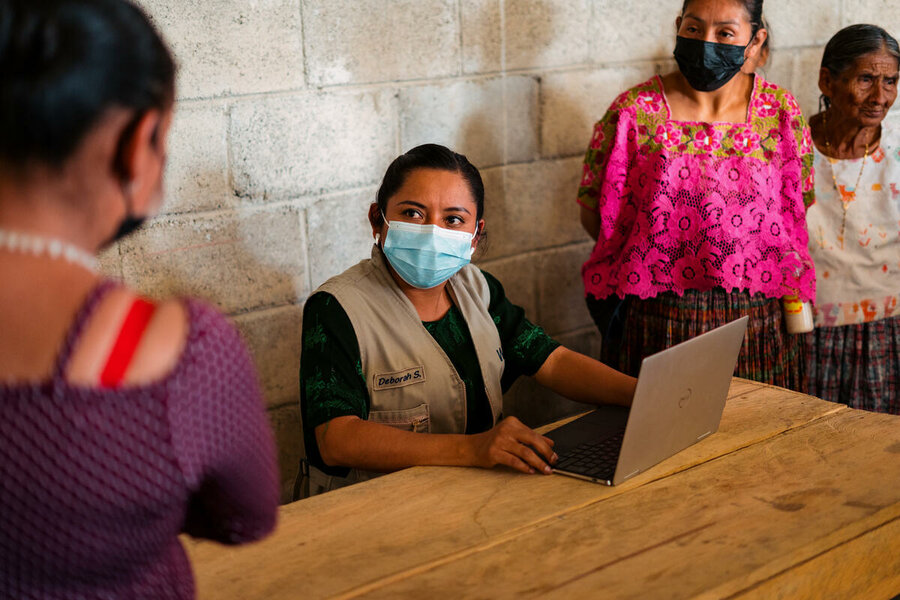
Downloading books is but a pipedream for so many in the developing world. Is the humanitarian sector lagging behind on digital inclusion - so much of WFP's work even in resilience-building seems to be a firefight against hunger.
"It varies from one country to another," she says. "In Egypt, for instance, we have a very strong partnership with the Government and the ministry of education for digitalizing school teaching and access to digital learning."
'We are fighting against centuries of cultural norms'
Greater digital inclusion requires "good partnership at education level, with bodies that can provide the equipment, IT companies for having access to WiFi" - and a committed approach, working with "national governments and ministries" to ensure that interventions stay the course over the longer term and are not one-offs.
This year WFP aims to reach 35 million women and children with malnutrition prevention and treatment across the world - 16.5 million more than it reached in 2021.
Firmly at the front line of the global hunger crisis are the 27 million pregnant and breastfeeding women who are currently food-insecure and at risk of malnutrition.
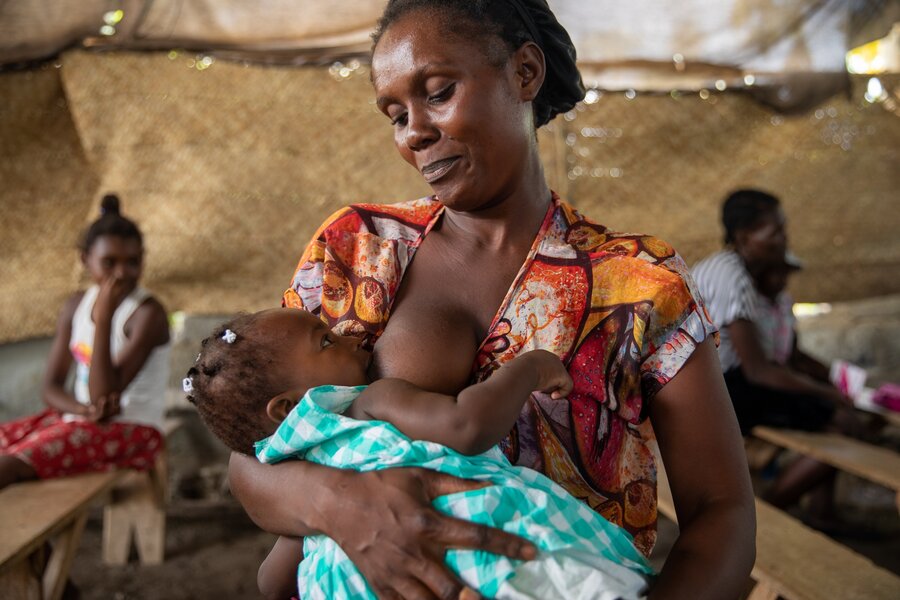
"Breastfeeding is one of the many things we encourage women to do to ensure the health of their babies, but breastfeeding can only work if the mothers themselves have access to good nutritious food - so it's a chain," says Sainte-Luce.
WFP complements its work in nutrition with school feeding programmes that aim to give children as strong as possible when it comes to learning - literally nourishing their futures.
When families are under pressure, however, attendance drops. Girls are often despatched into domestic labour.
"We are fighting against centuries of cultural norms," says Sainte-Luce. "'To keep girls safe, let them be married to another adult'. But we know from many studies that a girl being educated as long as possible will also enable her family to benefit from that education. She will feed better her children, take more informed decisions. She will be a more productive member for society and her family."
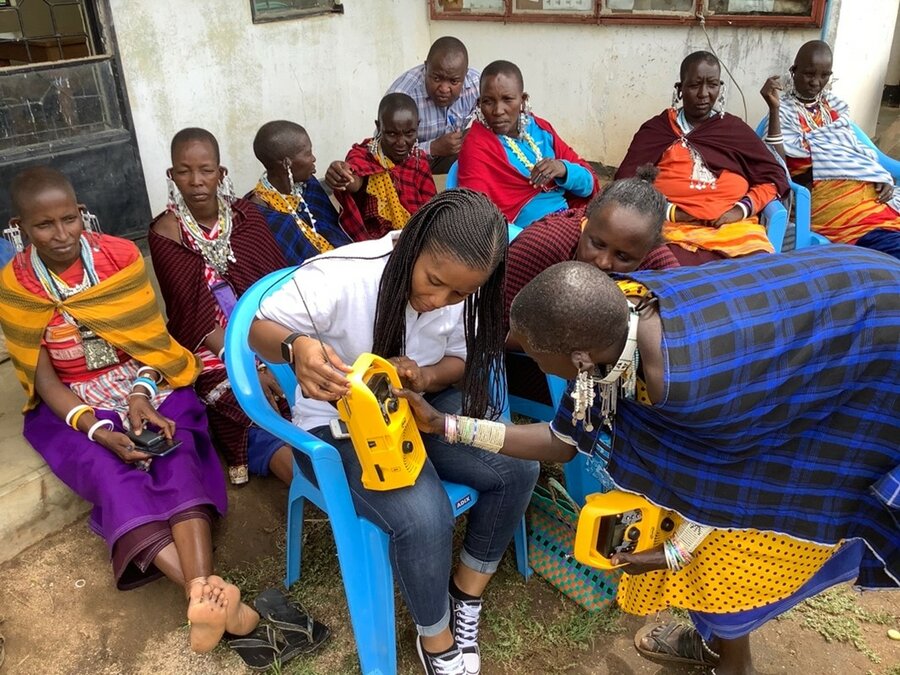
For their part, men have to realise that closing the gender gap "is not about women's rights over men's rights. It's how together we can have the same opportunity, the same access to resources, to knowledge - and have the same ability to have agency over our own life."
In DRC "the family code supports this inequality between men and women - with wives having limited autonomy in their marriage. And being legally obligated to obey their husbands. This leads to a high rate of gender-based violence and domestic abuse. And even worse, the prevailing acceptance of this behaviour by both men and women."
In country after country, working to change the law is imperative, she says - the mouse-clicking required to achieve that cannot start happening soon enough.






